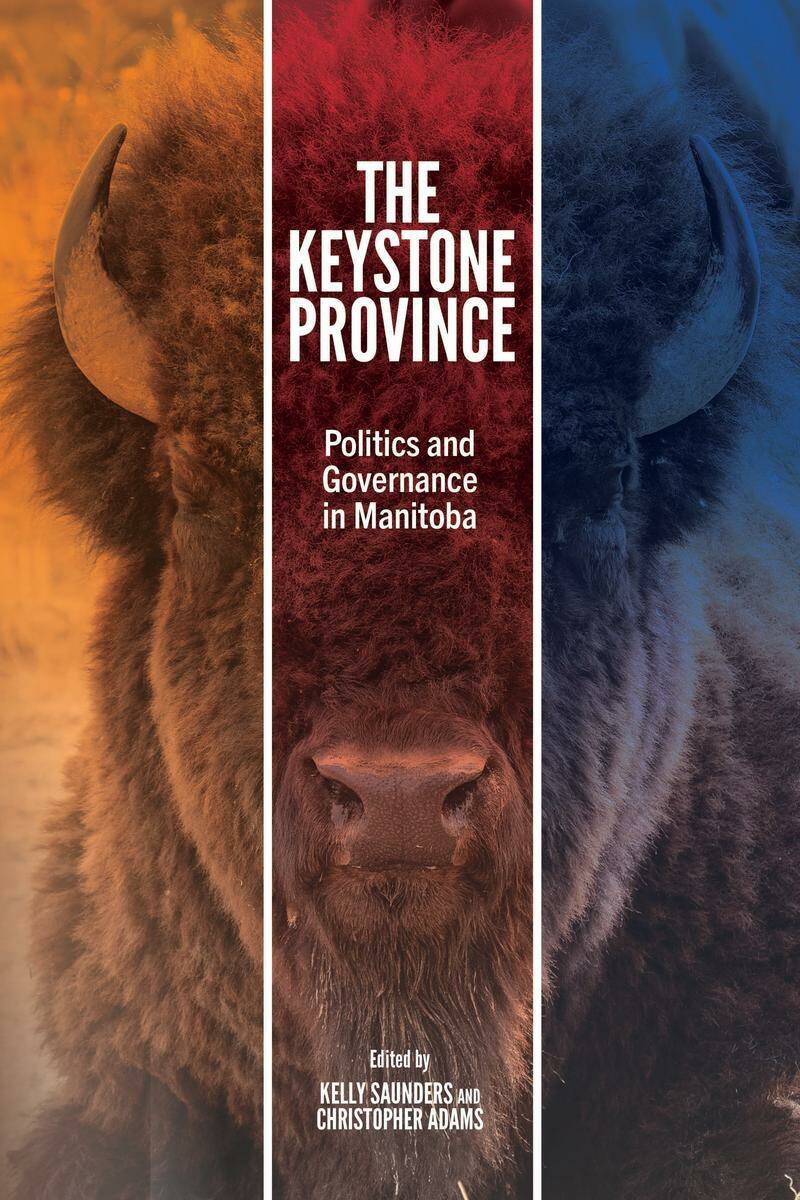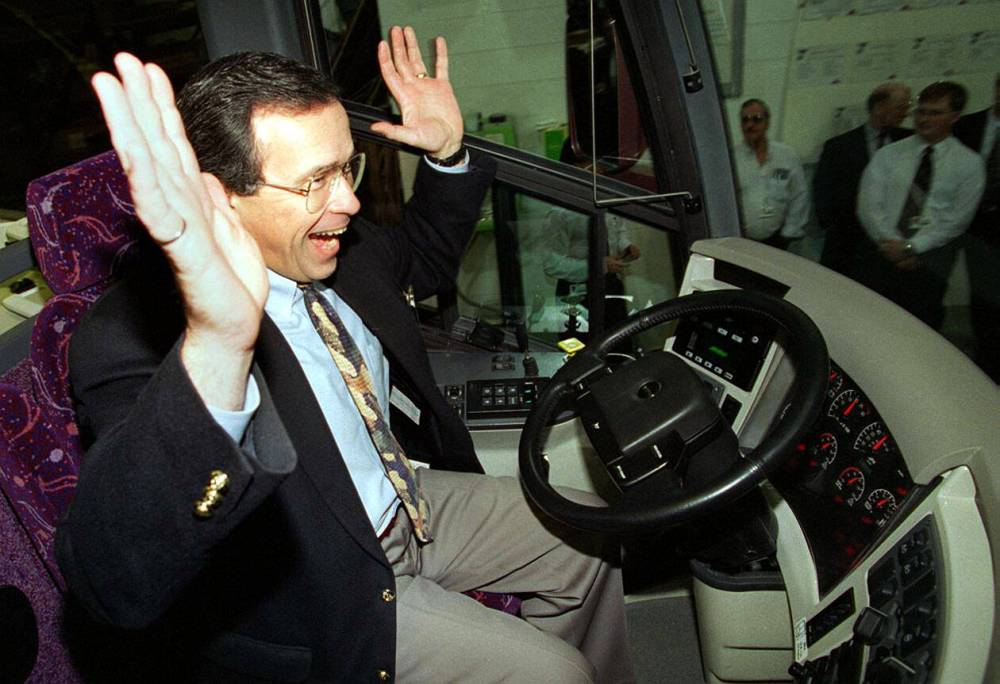Anything but boring
Some of Manitoba’s most explosive political incidents given short shrift in new anthology
Advertisement
Read this article for free:
or
Already have an account? Log in here »
To continue reading, please subscribe:
Monthly Digital Subscription
$0 for the first 4 weeks*
- Enjoy unlimited reading on winnipegfreepress.com
- Read the E-Edition, our digital replica newspaper
- Access News Break, our award-winning app
- Play interactive puzzles
*No charge for 4 weeks then price increases to the regular rate of $19.00 plus GST every four weeks. Offer available to new and qualified returning subscribers only. Cancel any time.
Monthly Digital Subscription
$4.75/week*
- Enjoy unlimited reading on winnipegfreepress.com
- Read the E-Edition, our digital replica newspaper
- Access News Break, our award-winning app
- Play interactive puzzles
*Billed as $19 plus GST every four weeks. Cancel any time.
To continue reading, please subscribe:
Add Free Press access to your Brandon Sun subscription for only an additional
$1 for the first 4 weeks*
*Your next subscription payment will increase by $1.00 and you will be charged $16.99 plus GST for four weeks. After four weeks, your payment will increase to $23.99 plus GST every four weeks.
Read unlimited articles for free today:
or
Already have an account? Log in here »
Manitoba politics are boring.
Nothing to see here. Move along.
At least that’s what the editors and authors of The Keystone Province: Politics and Governance in Manitoba seemingly want us to believe, although they claim otherwise.

The Keystone Province
The anthology, edited by Brandon University political scientist Kelly Saunders and Christopher Adams, rector of St. Paul’s College at the University of Manitoba, brings together some of the best brains in Manitoba and Canada to ponder the nuts and bolts of democracy in this province.
Saunders and Adams acknowledge their debt to authors who have written definitive works on Manitoba in the past, especially Adams’ U of M colleague and mentor Paul Thomas, who co-edited Manitoba Politics and Government: Issues, Institutions, Traditions in 2010.
The editors’ ambitious mission is to update Thomas’s book and offer “an informed and comprehensive insight into political, economic and social life in Manitoba, from both an historical and a contemporary perspective.”
In their introduction, the editors say they intend to show “contemporary politics and governance in Manitoba are anything but boring and unremarkable.”
But much of the rest of the text undercuts their stated intention.
The chapter on the political culture of Manitoba, by University of Alberta political scientist Jared Wesley and his former student Lauren Hill, uses the words “modesty” and “moderation” no fewer than 17 times in 19 pages. “Manitoba’s ‘mediocre’ image is well-earned,” they conclude.
In their chapter on media and polling, Probe Research pollsters Curtis Brown and Mary Agnes Welch assure us that “Manitoba’s centrist political culture does not lend itself to the kind of political drama” witnessed in Alberta or British Columbia.
In the book’s final sentence, the editors are forced to concede, “While our moderate political culture may be seen as boring and banal by some…”
It seems an odd way to encourage interest in our politics and an even odder way to try to sell books.
Deliberately or inadvertently, the editors and authors have given short shrift or completely ignored some of the most important — and least boring — events in their subject areas.
The chapter that traces the treatment of the French language in Manitoba ignores the French-language debate that paralyzed the Legislature for weeks in the mid-1980s, after the Supreme Court of Canada ruled all of Manitoba’s laws were invalid because they had not been enacted in French as well as English.

Joe Bryksa / Free Press files
In this 1996 photo, then-Premier Gary Filmon checks outa new bus at Motor Coach Industries’ Winnipeg plant.
The chapter on the sometimes-tricky relationship between Crown corporations and their political masters ignores the 1988 MTX scandal — in which then-Crown corporation Manitoba Telephone System bled more than $29 million through a subsidiary in Saudi Arabia, without telling the cabinet minister in charge.
Neither does it cover the 1988 admission by the minister responsible for Manitoba Public Insurance that the cabinet had made a “political decision” to mislead voters by delaying an unpopular Autopac rate hike until after the 1986 election.
In 1999, CBC Radio journalist Curt Petrovic broke the story that four years earlier, top aides to then-Premier Gary Filmon had recruited candidates for a fake political party to split the NDP vote in swing constituencies.
Filmon was forced to call a judicial inquiry and testify at it. The judge concluded that he had “never seen so many liars” in his life.
In its only reference, the book dismisses this blatant attempt to subvert democracy in less than a full sentence as mere “electoral skullduggery.”
Some aspects of the brief rise and fall of Premier Heather Stefanson are scrutinized by several authors.
Stefanson’s Question Period gaffe, in which she congratulated her son on winning a hockey game instead of acknowledging a death in the health care system, is mentioned in four chapters.
Other Stefanson references include her refusal to search the landfill for the bodies of murdered Indigenous women, her subsequent election ads touting her decision to “stand firm” and her anti-gay “parental rights” campaign plank.
But there is not a single word about her violation of the “caretaker convention.”
Stefanson tried to get an environmental licence approved for a sand mine after her government had been defeated in October 2023, violating the constitutional convention that prohibits outgoing governments from making major decisions that bind their successors.

Mike Deal / Free Press files
Several contributors to The Keystone Province scrutinize the brief rise and fall of former premier and Progressive Conservative leader Heather Stefanson.
Stefanson was recently found guilty of conflict of interest by the ethics commissioner and fined $18,000 by the Legislature.
That happened after this book went to press, but the details of the scandal had been clearly on the public record since immediately after the election.
The defeated premier’s attempt to subvert democracy seems to present a potentially rich case study of what can go wrong in “politics and governance in Manitoba.”
Perhaps a future book will capitalize on these missed opportunities.
Are Manitoba politics boring?
Only if you leave out the juicy bits.
Donald Benham is a freelance writer living near Beausejour.

